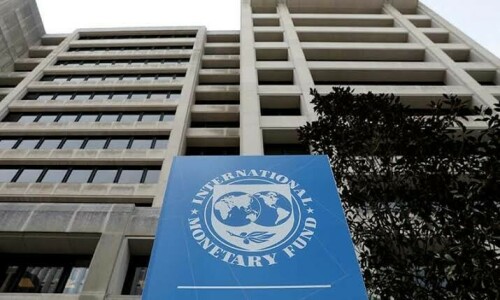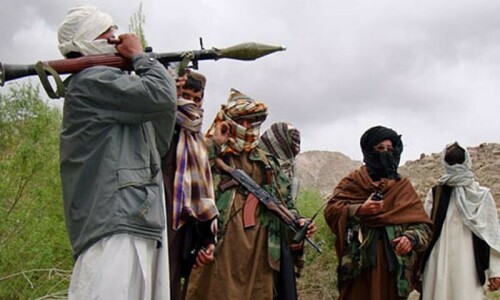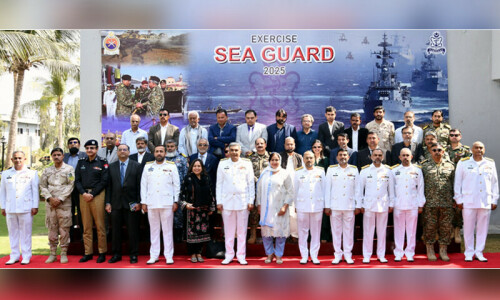ISLAMABAD, Oct 19: The United Nations Children’s Fund (Unicef) on Wednesday warned that 10,000 more children could die from hunger, cold and disease in coming weeks because aid has still not reached certain parts of quake-hit Pakistan.
Unicef called for immediate steps to push through more supplies, saying that children would be the first victims in a possible “second wave of deaths” as winter approaches.
Up to 120,000 children remain unreached in mountain areas devastated by the Oct 8 quake, “of whom the agency estimated some 10,000 could die of hunger, hypothermia and disease within the next few weeks,” it said in a statement.
“The relief effort is becoming more complex with each passing day,” the statement quoted Unicef executive director Ann Veneman as saying at the agency’s global warehouse in Copenhagen.
She said outbreaks of diarrhoea had already been reported in stricken areas and there was a “significant threat of disease”.
Unicef called for more helicopters to help reach survivors in isolated mountain areas, where access was difficult even before the quake which destroyed most roads and paths.
“There are still too few helicopters to reach more than 1,000 remote villages with life-saving supplies that children urgently need,” Ms Veneman said, adding that Unicef also lacked humanitarian partners to make deliveries.
“Given the intermittent shutdowns of the air corridor because of bad weather, the consequences for sick and injured children could be grave,” she said.
The Unicef chief added that temperatures were dropping and roads to stricken areas had become clogged with mud and people fleeing the mountains with their injured.
Even if children receive the tents and blankets they desperately need, they remain seriously threatened by a lack of medical assistance, dehydration due to bad water, and malnutrition, Ms Veneman pointed out.
The World Food Programme said on Tuesday that half a million survivors of Pakistan’s earthquake were in ‘desperate need’ of shelter, blankets, medical care and food, and that “time is running out to save them”.
James Morris, executive director of the United Nations agency, said that reaching the isolated victims in the Himalayas was one of the toughest aid missions ever.
COPTER SHORTAGE: On the other hand, Nato chiefs acknowledged the military alliance was short of the helicopters urgently sought by Pakistan to bring relief to quake victims.
Nato last week set up an air-bridge to deliver tons of relief aid from Europe to Pakistan, and is now studying how to offer more help. One key need highlighted by Islamabad is helicopters, vital to reaching many victims in remote areas.
“We understand Pakistan is in need of light helicopters — we have very few of those,” US Vice-Admiral John Stufflebeem, who commands the 17,000-strong Nato rapid reaction force, told a news briefing at Mons in southern Belgium on Wednesday.
He said the alliance had long faced difficulties in convincing its 26 members to come forward with expensive-to-run helicopters.
“Helicopters have been a real problem for us to generate, not only for Pakistan but also for Afghanistan,” Supreme Allied Commander Gen James Jones told the briefing at Nato’s military headquarters.
Nato envoys are expected to decide by Friday on the level of new help to be offered to Pakistan. No numbers have been officially announced yet, but several sources in the alliance said earlier this week there was a push to raise dozens of helicopters.
Washington unilaterally said last week it expected to have 40 of its military helicopters on the ground in coming weeks. Germany has already sent two of its helicopters.
Its lack of helicopters and the lengthy decision-making processes it must go through have raised doubts over whether Nato can take on the rapid humanitarian relief tasks which many in the alliance believe it must offer. But Gen Jones disagreed.
“The Nato nations have a lot of experience in humanitarian operations,” he said, citing past missions such as airdrops it carried out in war-hit Bosnia during the 1990s.
“There is quite a bit of evidence that Nato knows how to do this. We can do it, and we can do it well, by air or by sea,” he said.—Agencies
















































